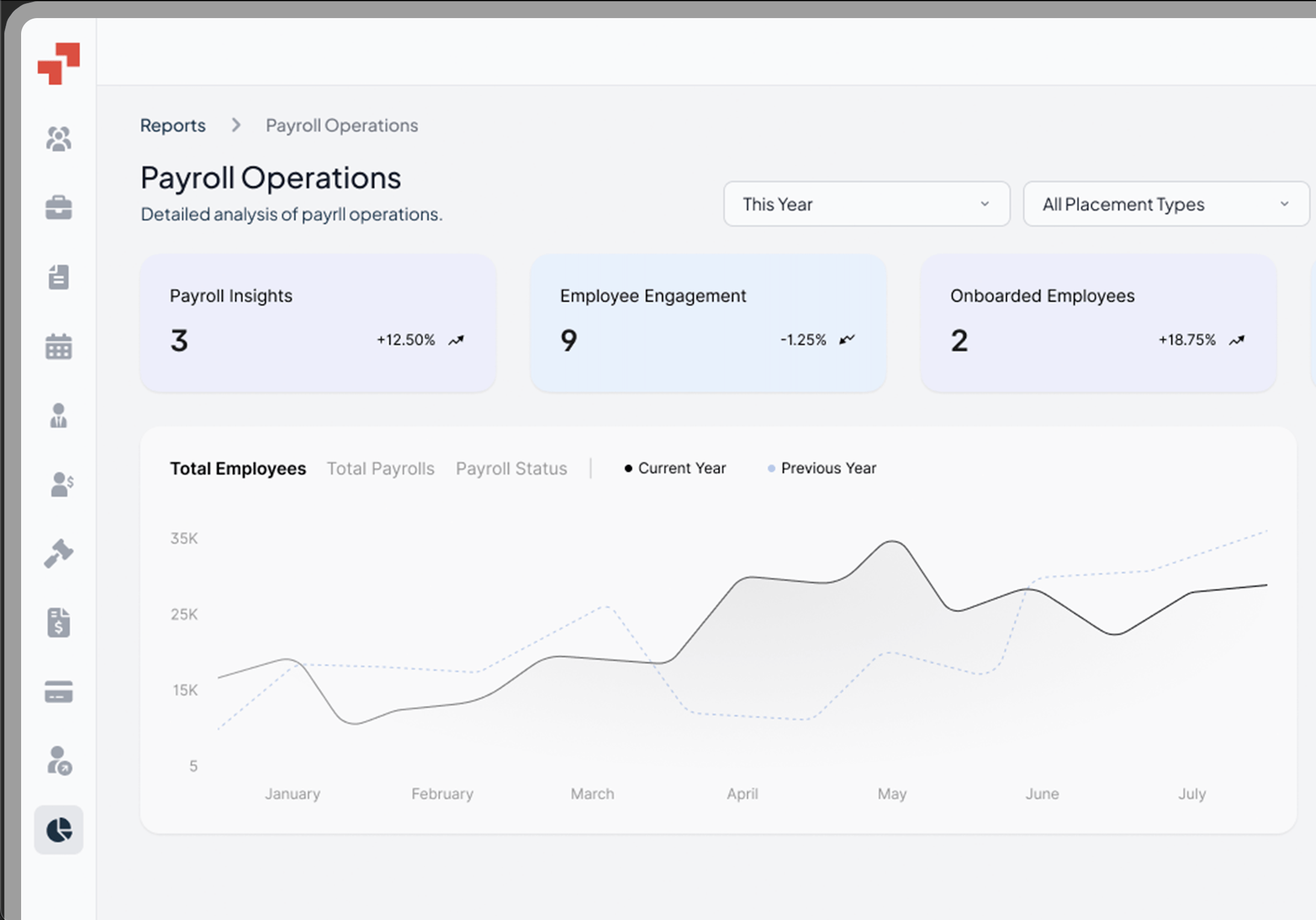TABLE OF CONTENTS
Germany boasts the world’s fourth-largest labor market, offering a pool of highly skilled and educated professionals. However, setting up shop or hiring contractors in Germany can be a daunting task due to its intricate employment laws.
One crucial consideration is the AUG license (AÜG license), a requirement for businesses looking to hire temporary staff or contractors. But what does this entail?
What is AUG?
AUG, short for Arbeitnehmerüberlassungsgesetz or the Temporary Employment Act, is a German regulation governing temporary employment.
The AUG license is a vital permit that allows staffing agencies to supply temporary workers to other companies. Think of staffing companies like recruitment agencies or labor leasing firms that help businesses hire flexible workers without the hassle of direct employment.
What are the requirements of an AUG license?
To operate in Germany, staffing agencies need an AUG license, facilitating a triangular partnership between:
- The hiring company (client)
- The staffing agency (AUG license holder and legal employer)
- The contractor (temporary worker)
Temporary workers under AUG contracts enjoy equal treatment, including minimum wage and access to workplace facilities. They also get internal job posting access.
AUG contracts offer limited protections against unfair dismissal and different leave/notice periods. Full-time employees have more comprehensive employment protections.
Comparison with Other Countries:
Unlike the UK’s more flexible approach or the US’s varied state-by-state regulations, Germany’s AUG provides a standardized, federal-level framework for temporary employment. France has similar protections, but with different duration limits. Understanding these differences is crucial for international companies.
How long does an AUG contract last?
In Germany, AUG contracts have a strict 18-month limit. Exceeding this period can have significant consequences. If a company keeps a contractor beyond 18 months, they automatically become the legal employer. This triggers full statutory obligations under German Labor Law.
To rehire the same contractor, a 3-month “cooling off” period must pass after the original contract ends. Only then can a new AUG contract be established.
Understanding AUG contract limitations is crucial for businesses. Avoid unintended employer status and ensure compliance with German labor laws to minimize risks.
What are the benefits of an AUG license?
Collaborating through an AUG license offers numerous advantages for all parties involved. By operating in a compliant manner, businesses can reap lucrative rewards.
Partnering with an AUG license holder enables companies to:
- Access top talent in Germany’s competitive market
- Ensure tax and labor law compliance
- Quickly expand operations without establishing a local entity
- Hire seasonal or short-term staff without long-term commitments
- Test the local market with 18-month contracts
Advantages for AUG License Holders
As a licensed staffing provider, entities can:
- Legally operate as a staffing partner for international companies
- Expand their business offerings in Germany
Benefits for Contractors
Working through an AUG licensing ensures:
- Accrual of holiday and sick pay
- Access to health insurance
- Payment of unused holiday pay upon contract termination
- Tax-deductible expenses, potentially refundable through annual tax returns
Customer Success Story
See how a US-based tech startup broke barriers to expand its footprint across Europe and Africa, all with PamGro’s help
What are the shortcomings of an AUG license in Germany?
While AUG licenses offer numerous benefits, they also come with significant challenges and complexities.
- Processing fee: €1,300
- Annual renewal costs until open-ended license is attained
- Hefty fines for non-compliance: €30,000 to €500,000
- AUG contracts limited to 18 months
- Open-ended licenses expire if unused for 3 years
- 28 regulations to consider and comply with
- Frequent auditing and oversight by the FDA, especially for new license holders
- Not all applicants are approved for an AUG license
- Difficult to obtain open-ended licenses, with common appeals
- Maintaining an AUG license requires ongoing effort and resources
- Non-compliance can result in substantial fines and reputational damage
What should I know if I want to hire someone from Germany?
Hiring in Germany can be complex, but understanding your options is crucial. International companies eager to tap into Germany’s talent pool have two primary hiring routes.
Direct Hiring
Direct hiring eliminates AUG regulations, but requires your payroll and compliance team to grasp German payroll regulations and employment standards. This can be a costly and time-consuming process. Your team must navigate local laws, taxes, and social security contributions.
Hiring through an AUG-Licensed Employer of Record (EOR)
An EOR solution simplifies the hiring process. The EOR handles taxes, social security, and health insurance contributions, freeing you to focus on attracting top talent. However, contracts between you and the staffing company are limited to 18 months. After completion, a new contract can be signed with a new hirer or after a 3-month reset period.
Long-Term Hiring Solutions
If you plan to hire a German employee for an indefinite period, alternative compliant solutions exist. Consult with a hiring specialist to determine the best approach for your business.
Streamline Your Hiring Process
Partnering with an EOR provides numerous benefits, including access to top German talent without setting up a local entity and streamlined hiring processes. Let compliance experts handle the complexities.
Payroll Solutions Unrivalled since 15 Years

How PamGro solves hiring in Germany?
As an AUG-licensed Employer of Record, PamGro offers several advantages:
- We ensure all hirings comply with AUG regulations and other German employment laws.
- We handle all payroll deductions, tax obligations, and employment liability on your behalf.
- For long-term hires, we explore compliant solutions beyond the 18-month AUG cap.
- Our team understands the nuances of German employment law, ensuring a smooth hiring process.
- While we’re experts in German regulations, we can help you hire talent across multiple countries.
Related Newsletter Insight
Stay updated with the latest global hiring and compliance changes.
FAQs
1. Can we hire for longer than 18 months?
Yes, PamGro can help structure longer engagements compliantly.
2. What happens if AUG regulations change?
PamGro continuously monitors regulatory changes and adjusts our processes to ensure ongoing compliance.
3. Can temporary workers be hired permanently?
Yes, and PamGro can assist with this transition process.
Hire the Best Talent, Anywhere








